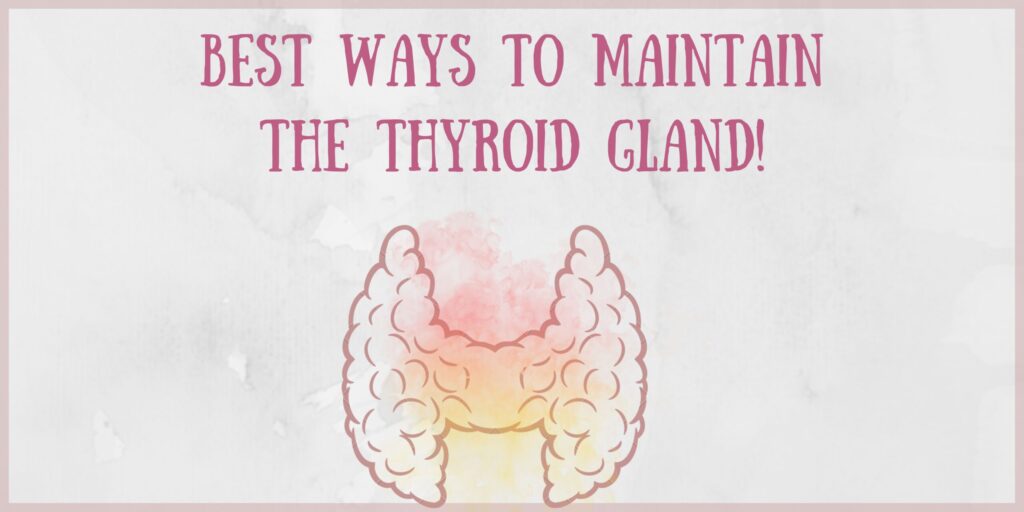Functions of the thyroid gland
The functions of the thyroid gland are adequately explained in this article. The thyroid hormone is the primary hormone that controls the rate of your body’s metabolism. The thyroid hormone is crucial for brain improvement in babies. The thyroid is a small gland in the front of your neck that looks like a butterfly. It makes and lets out thyroid hormone. It’s a component of your system of hormones.
Hormones are substances that send signals via your blood to your body parts, muscles, as well as other tissues. This helps your body’s different systems work together. Your body gets messages from these signals about what to do as well as when to perform it. Metabolism is the complicated process by which your body turns the food you eat into energy. To work correctly, every cell in your body needs fuel.
The thyroid gland helps keep your skin and bones healthy by controlling how fast your body gets rid of dead cells.
Two main types of thyroid hormones
The two principal hormones that the thyroid gland makes are thyroxine (T4) and triiodothyronine (T3). They are often called “thyroid hormones” because T4 is primarily inactive, which means it doesn’t affect your cells, while T3 does. Once the thyroid discharges T4, specific organs in the body change it into T3 so it could impact the cells and the metabolism.
Playing a significant part in the metabolism, growth, and development of the human body is entailed in the functions of the thyroid gland. The thyroid furthermore makes a hormone named calcitonin, which administers the amount of calcium in the blood. This helps keep the calcium levels in check. Calcitonin is not a thyroid hormone, and it does not affect the metabolism like the thyroid hormones T3 and T4 do.
The manufacturing and discharge of thyroxine (T4) and triiodothyronine (T3), which are thyroid hormones, are governed by a response cycle system that includes:
- Thyroid gland
- The pituitary gland
- Hypothalamus
- Several hormones
Functions of the thyroid gland and other glands
The pituitary gland is a tiny gland about the thickness of a groundnut. It is at the bottom of the brain, underneath the hypothalamus. It contributes to making eight hormones and lets them out. The hypothalamus is a segment of the brain that regulates things like digestion, body temperature, heart rate, and blood pressure.
The hypothalamus is interconnected to the pituitary gland by a stalk made up of nerves and blood vessels. The pituitary stalk is what you call this part. The hypothalamus transmits information to the pituitary gland only through this stalk and asks it to discharge specific hormones. Thyroid hormones are continually released into the circulation, which helps control various physiological processes and is included in the functions of the thyroid gland.
T3 and T4 thyroid hormones affect every cell and organ in the body. They control how fast your body burns calories (energy). This is called the metabolic rate, which affects whether you lose or gain weight. Suppose you have troubles with the thyroid gland, pituitary gland, or hypothalamus. In that case, the hormones, especially T3 and T4, could sometimes be out of control.
Tips for maintaining the thyroid gland
Some thyroid problems are:
- Thyroid cancer
- Thyroid nodules
- A thyroid that works too much is a sign of hyperthyroidism.
- Hypothyroidism is caused by a thyroid that doesn’t work as well as it should.
- When the thyroid is inflamed, this is called thyroiditis.
- A goitre is when the thyroid gland gets bigger.
- Graves’ disease is an autoimmune disease that makes the thyroid work too much.
- Hypothyroidism is the result of an autoimmune disease called Hashimoto’s disease.
The butterfly-shaped thyroid gland in your neck is affected greatly by what you eat. When the body requires more energy, like when it is growing, sick, or pregnant, the thyroid gland sends out more hormones and is encompassed in the functions of the thyroid gland.
Iodine is important throughout life, but it is especially important when a baby’s brain grows, which happens during pregnancy and early childhood. Lack of iodine can cause brain damage that can’t be fixed and is the main cause of mental impairment worldwide.
Aside from iodine, lean protein and legumes are other foods that help the thyroid. Blueberries, bell peppers, tomatoes, and other foods high in antioxidants are good for you. Eat moderate amounts of high-fibre foods. Omega-3 fats and heart-healthy fats are good for maintaining the thyroid gland.



